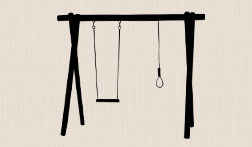Submitted by jonas on
Juvenile Justice in the West Bank: Analysis and Recommendations for Reform examines the challenges facing juveniles in the criminal justice system of the West Bank and provides recommendations to remedy systemic problems, in order to ensure that the rights of juveniles are protected. More specifically, the report 1) documents the current state of juvenile justice reform in the West Bank, the experiences of the International Legal Foundation’s (ILF)n juvenile clients and other juveniles within the Palestinian justice system, and the effect that their involvement in the criminal justice system has on their daily lives; and 2) based on this information, analyzes the extent to which laws protecting the rights of accused juveniles are being implemented in practice.
Under the Palestinian criminal justice system, a juvenile is defined as a person younger than 18 years old. 1 In 2011, ,702 juveniles were accused of a criminal offense in the West Bank, 2 with many of the alleged crimes carrying sentences of less than three years and therefore falling under the jurisdiction of the conciliation courts. 3 Approximately 75-80 percent of juvenile cases are eventually dismissed, after repeated adjournments. 4 In the meantime, children are held in detention in at least 25% of cases 5 and, because there is only one juvenile detention center in the West Bank, they are often detained in the same facility as adults, though in a separate holding area. For the ILF-West Bank, the average time between arrest and judgment in juvenile cases is 284 days, 6 with delays primarily due to the non-attendance at court of witnesses.
While the State of Palestine has made significant strides in enacting laws that are intended to protect the rights of uveniles in the criminal justice system, this study shows that poor implementation and lack of oversight undercut these laws. Juveniles have long been recognized as a protected class under Palestinian law, and the State of Palestine has begun to develop a separate juvenile justice system with the creation of a specialist juvenile police unit, judges who take exclusive responsibility for juveniles’ cases, and lawyers from the Ministry of Social Affairs providing criminal defense services to indigent juveniles. The justice sector has also focused on legislative reform to address gaps and oversights in the juvenile justice system; for instance, the Draft Law on Juvenile Protection has been fully developed and is awaiting presidential approval. The juvenile justice reform movement began prior to the start of this study and continues today. However, certain deficiencies in the law do exist which have yet to be remedied by any of the proposed reforms, most notably the need for clear provisions regarding the appointment of counsel at the earliest possible time after arrest. Additionally,
at the time each juvenile involved in this study was arrested, there were existing laws that, if implemented correctly, could have protected them against the violations set out below.
Since opening its first public defender office in the West Bank in late 2010 through the end of 2013, the ILF and its 11 Palestinian lawyers 7 have represented almost 500 indigent persons accused of crimes, including 180 juveniles. The information gathered during the course of its day-to-day representation of juveniles in the court system, combined with the data gathered through its case tracking system and in-depth interviews with 46 of its young clients, 8 has led the ILF to identify five specific areas of the criminal justice system where the rights of juveniles are too often ignored:
-
Juveniles are rarely informed of their right to counsel in a timely manner, and delay in obtaining counsel is systemic. Only 16% of juveniles interviewed were informed of their right to counsel by the prosecutor at the time of investigation. Of the 46 interviewees, only two were informed of their right to counsel by the court.
-
Unlawful police practices at the time of a juvenile’s arrest and during the early stages of the police investigation of the case are widespread. Only 9% of interviewees had a parent present during the investigation. Only 43% were told about the reason for their arrest.
-
Maltreatment of juveniles in police custody is extremely common; 74% of interviewees reported suffering some form of abuse, whether physical, psychological, or both
-
Prolonged pre-trial detention is the norm rather than the exception. There is only one juvenile detention center in the West Bank, Dar Al-Amal in Ramallah; 87% of male juveniles from across the West Bank are detained at Dar Al-Amal pre-trial. This adds to court delays because juveniles are often not produced in courts outside Ramallah on their scheduled court dates. On a positive note, interviewees reported being well-treated at Dar Al-Amal.
-
Speedy trial violations are common, and particularly egregious because most cases end in acquittals or dismissals. The average time between arrest and judgment was 284 days in the 88 ILF-West Bank cases that reached a final verdict as of the end of 2013.
To address these problems, this report recommends the following:
-
All juveniles should have prompt access to qualified defense lawyers at all stages of the criminal process, including during any interview by judicial officers and/or public prosecutors.
-
Whenever possible, the use of pre-trial detention for juveniles should be avoided by imposing alternative measures, such as release on bail or close supervision.
-
Police should be further trained in how to handle juvenile cases, and should be subject to independent oversight; juveniles should be encouraged to make complaints, and courts should monitor and remedy rights violations.
-
Juvenile cases should be tried without undue delay. Especially in cases in which juveniles are held in pre-trial detention, trial delays should be strictly limited.
-
Whenever possible, juveniles should be diverted away from judicial proceedings into community programs and provided available treatment and support services.

